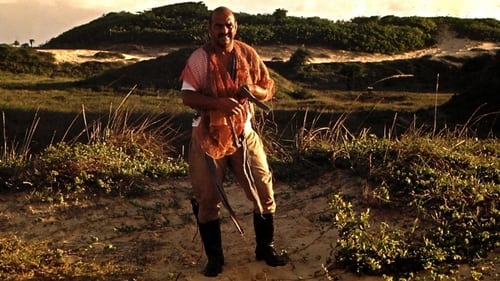
Cinematography

Writer

Director

Screenplay

Director

Director
A farm laborer is stunned for pain and for the jealousy when its godson assures to it that his wife is betraying with the proper brother. Both they go in revenge search, following for a tragic destination.

Himself (as Hermano Penna)

Director

Director of Photography
En 1977, Raquel Gerber inició una investigación para una película sobre la emancipación de la población negra de Brasil. Tres años más tarde conoció a Beatriz Nascimento quien, en busca de su propia identidad, estaba haciendo una investigación histórica sobre la relación entre las culturas negras de África y Brasil. Ellos decidieron cooperar. El resultado es una película sobre las organizaciones negras y conferencias en los años 1970 y 80, por un lado, y sobre un estudio algo emocional y poético por Beatriz Nascimento de la continuidad cultural del brasileño negro por el otro. Sin embargo, la película es mucho más que esto: es también un intento de arrojar nueva luz sobre la historia de los negros, y así contribuir a la emancipación negra.

Producer
The story of two brothers who are trying to farm in the Brazilian Amazon.

Screenplay
The story of two brothers who are trying to farm in the Brazilian Amazon.

Director
The story of two brothers who are trying to farm in the Brazilian Amazon.

Director of Photography

Producer
In the 40s, a sergeant is ordered to escort a political prisoner from Paulo Afonso to Aracaju, Brazil. During the trip, there's a change in the Government and he is ordered to release the prisoner. But he decides to go all the way.

Writer
In the 40s, a sergeant is ordered to escort a political prisoner from Paulo Afonso to Aracaju, Brazil. During the trip, there's a change in the Government and he is ordered to release the prisoner. But he decides to go all the way.

Director
In the 40s, a sergeant is ordered to escort a political prisoner from Paulo Afonso to Aracaju, Brazil. During the trip, there's a change in the Government and he is ordered to release the prisoner. But he decides to go all the way.

Director of Photography
The path of Paraguayan immigrants who drive to Asuncion and then arrive in São Paulo. They are rural workers, musicians, vendors and underemployed people. Two parallel worlds: the Guarani culture and the Brazilian adventure in São Paulo juxtaposed with Paraguayan songs and the Guarani language, spoken by the main characters.

Screenplay
The path of Paraguayan immigrants who drive to Asuncion and then arrive in São Paulo. They are rural workers, musicians, vendors and underemployed people. Two parallel worlds: the Guarani culture and the Brazilian adventure in São Paulo juxtaposed with Paraguayan songs and the Guarani language, spoken by the main characters.

Director of Photography
The process of formation of the person and its identity from an African conception of the world. The orixás (gods), linked to the forces of nature, are equal to people, and are not transcendent. of the person with their orixá, within the family and the culture. Filmed in a Candomblé terreiro of Bantu origin.

Writer
Documentary--with reconstituted scenes and interviews--about some of the more than 50 women who were in Cangaço, a phenomenon of social banditry from the Northeastern region of Brazil in the early 20th century.

Director
Documentary--with reconstituted scenes and interviews--about some of the more than 50 women who were in Cangaço, a phenomenon of social banditry from the Northeastern region of Brazil in the early 20th century.

Story
A girl from the countryside goes to the city of Belém to take part in the Círio de Nazaré celebrations. Led to prostitution, she wishes to move to the wealthiest Southeast region of Brazil. In a dance club, she meets a truck driver that transports wood. Dreaming with the big city, she asks for a ride, and the two begin a journey through the Trans-Amazon road. In tension with the Brazilian military authorities of the time, the film registers several aspects of the Amazon social tragedy – forest fires, slave work and child prostitution. Awarded in several international festivals, the film was forbidden by the Brazilian censorship. It was only released years later, winning the Brasília Film Festival in 1981.

Camera Operator










